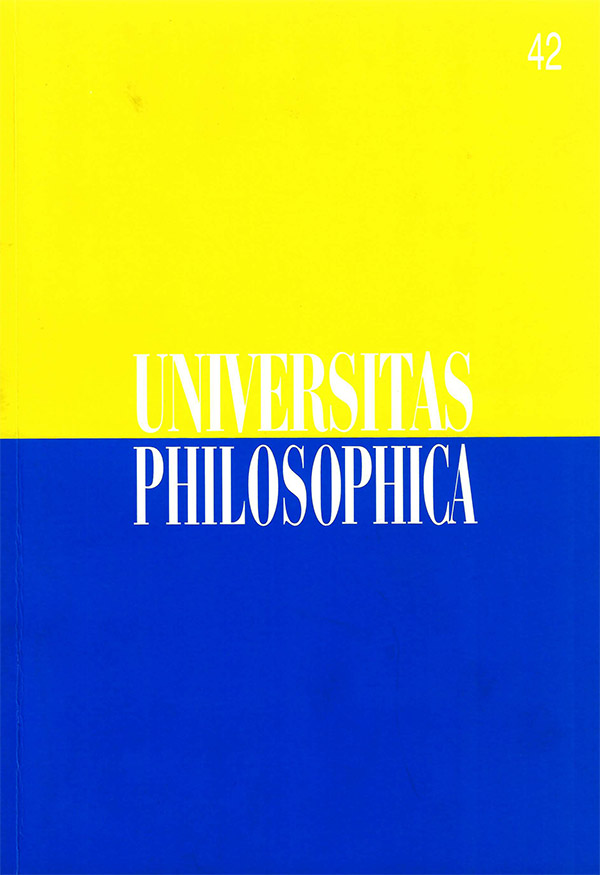Abstract
This work aims to a presentation on the thomistic treatment of memory and its different modalities in the fields of sensibility, intellect and the separate soul. A motif circulates all along this presentation and it is presented as a problematic hypothesis: Is there a memory of intellective knowledge? The problem arises when one contrasts the state of the separate soul with respect to the acquired knowledge in the «present state of life». Could the soul retain, remember and actualize that acquired knowledge in the «present state of life», as a separate soul, after man's death? An ambiguity in memory status when the soul passes from the «present state of life» to the life as a separate soul, will be found as a conclusion, emphasizing the consequences derived for a consideration of the thomistic anthropology and metaphysics.
This journal is registered under a Creative Commons Attribution 4.0 International Public License. Thus, this work may be reproduced, distributed, and publicly shared in digital format, as long as the names of the authors and Pontificia Universidad Javeriana are acknowledged. Others are allowed to quote, adapt, transform, auto-archive, republish, and create based on this material, for any purpose (even commercial ones), provided the authorship is duly acknowledged, a link to the original work is provided, and it is specified if changes have been made. Pontificia Universidad Javeriana does not hold the rights of published works and the authors are solely responsible for the contents of their works; they keep the moral, intellectual, privacy, and publicity rights.
Approving the intervention of the work (review, copy-editing, translation, layout) and the following outreach, are granted through an use license and not through an assignment of rights. This means the journal and Pontificia Universidad Javeriana cannot be held responsible for any ethical malpractice by the authors. As a consequence of the protection granted by the use license, the journal is not required to publish recantations or modify information already published, unless the errata stems from the editorial management process. Publishing contents in this journal does not generate royalties for contributors.


